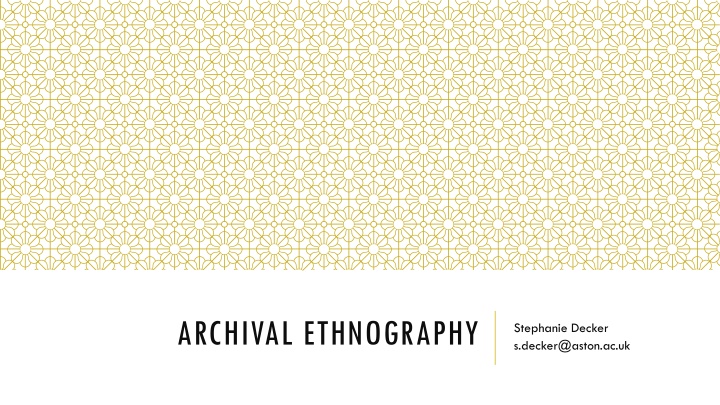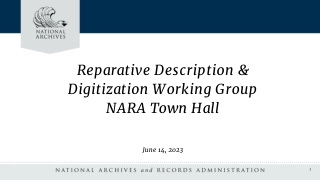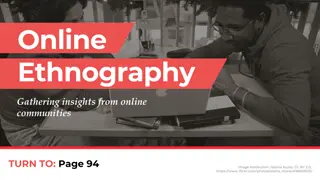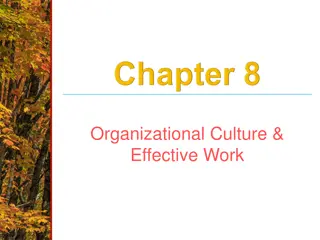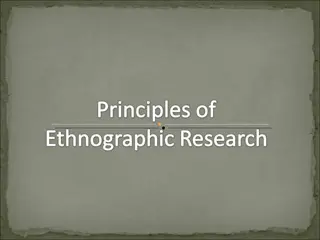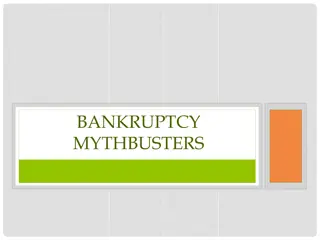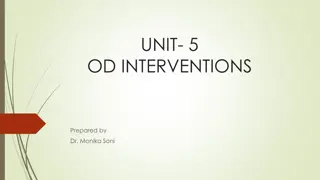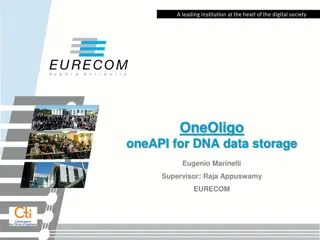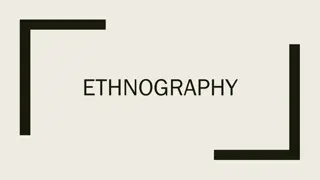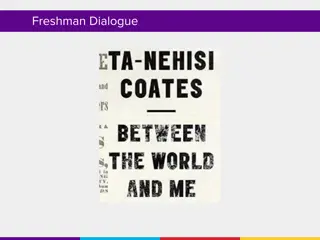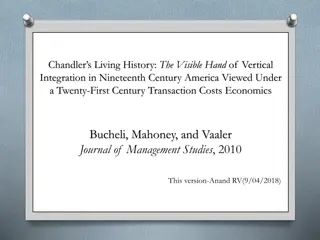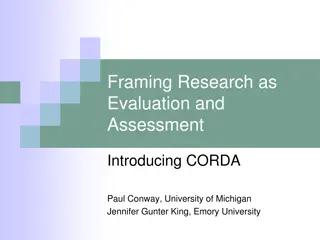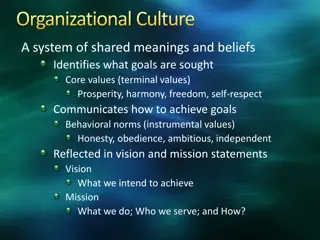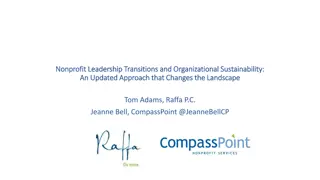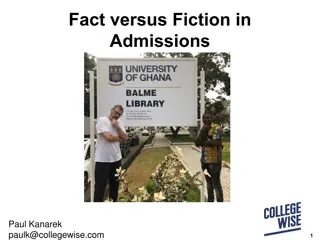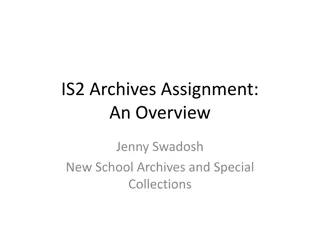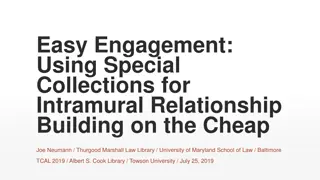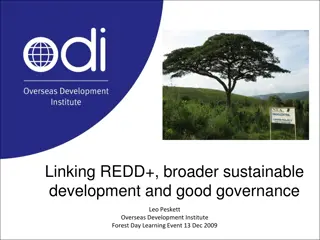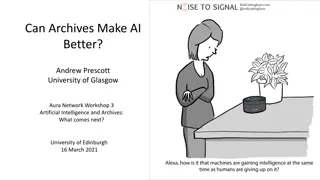Archival Ethnography: Uncovering Organizational Realities
Archives offer rich resources for research, shedding light on actual events and choices made, challenging assumptions, and providing a non-linear understanding of the past. Archival ethnography explores these hidden insights through meticulous examination of social documents and narratives. Discover the complexities of archival research and its implications in organizational studies.
Download Presentation

Please find below an Image/Link to download the presentation.
The content on the website is provided AS IS for your information and personal use only. It may not be sold, licensed, or shared on other websites without obtaining consent from the author.If you encounter any issues during the download, it is possible that the publisher has removed the file from their server.
You are allowed to download the files provided on this website for personal or commercial use, subject to the condition that they are used lawfully. All files are the property of their respective owners.
The content on the website is provided AS IS for your information and personal use only. It may not be sold, licensed, or shared on other websites without obtaining consent from the author.
E N D
Presentation Transcript
ARCHIVAL ETHNOGRAPHY Stephanie Decker s.decker@aston.ac.uk
WHAT IS ARCHIVAL ETHNOGRAPHY? Considers the archive as a site for fieldwork not just as a metaphor Archival resources open up a limited window into the past This is neither an unproblematic access, nor is it unmediated by the site or the researcher It requires a rich archive with a significant quantity of social documents, rather than narrative sources The analogy with a research sites holds in as much a researcher visiting an organization will only ever gain a partial impression, may find certain areas withheld from view, and will be faced with misrepresentations Archival documents do much the same
WHY DO ARCHIVAL ETHNOGRAPHY? Archives are significant resources for research in their own Largely underused in organizational research Archives give access to more realistic accounts of how events unfolded than retrospective interviewing Respondents gloss over problems & inconsistencies Sense-making results in presenting a smoother process than what was actually experienced Archives can reveal choices not made & potential options that were not realised Stoler s non-events / history in the subjunctive Non-deterministic understanding of the past
WHAT KIND OF ARCHIVE IS REQUIRED? Large, usually paper-based, full of social documents (not just narrative sources) Notes, reports, correspondence Reveals flows of information & managerial practice Oral history or memoirs (narrative sources) can reveal more clandestine organizational practices Pranks played on managers Often personal flashpoints emerge between technical discussions where people vent or actually decide to make a meaningful observation that challenges organizational assumptions
WHAT IS ETHNOGRAPHIC ABOUT ARCHIVAL RESEARCH? Archive as a site that is encountered as a form of fieldwork Entry with a flexible direction to research, but open to serendipity Unexpected gems in the archive An attitude of bracketing off one s (researcher) perspective in favour of first understanding the setting Only afterwards switching back to considering theories, present-day attitudes, contextual information
ETHNOGRAPHY IN HISTORY Microhistory as a well-known approach that critically engages ethnography in its methodology Ginsburg distinguished between emic & etic approaches (insider & outsider) This corresponds to past & present: the researched are in the past, the researcher is in the present => both positions in time matter for historical research
HOW TO ANALYSE ARCHIVAL DATA? Source analysis: Who, what, when, how, why? Reading against the grain: between the lines, the unintended content of the source Contextual knowledge not accessible to the people at the time Hindsight knowledge or knowledge of outcomes Theoretical knowledge => Bringing the etic dimension to bear on the emic understanding Ann Lara Stoler s history in the subjunctive Epistemic anxieties (fear of what might happen) Non-events (that which could be imagined but did not occur)
NON-DETERMINISTIC HISTORY The past is not an unproblematic predecessor of the present Linked by simple causality Retrospective research Temporality Orientation Associated methodologies Examples Links between the present and the past are generative and changing, meaning that the content of history is never stable History as causality Clock time Post-positivist, history as science Secondary historical literature Comparative Historical Analysis, path dependence History as context Experienced time Interpretive Primary historical source analysis, oral history Microhistory
CONTRIBUTIONS Integrating history at a methodological level Connection of spatiality & temporality: the meaning of spaces (Decker 2014), lost spaces (Petani & Mengis 2016) Performativity: attempts to create future reality through words, ideas, strategic designs & theories How does unfold over time Can only be unpacked retrospectively, as outcomes can only be known ex post => prime candidate for historical research
CONCLUSION Archival ethnography is a specific form of archival research Requires large, rich archives that allow an immersion into the data akin to the experience of fieldwork It involves both immersion & withdrawal from the emic (insiders) experience Outputs do not necessarily take a specific form such as rich description Which could be an analytical step or the final result Archival ethnography could result in both ethnographic history (Rowlinson, Hassard & Decker, 2014) In the form of a rich narrative from a self-consciously angular theoretical perspective (etic within emic) It could also result in an analytically structured history (emic within etic)
